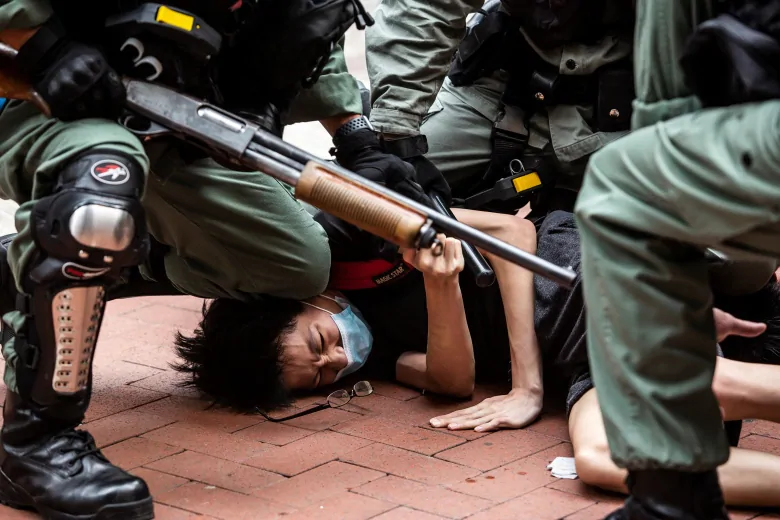No longer an unrivalled global superpower, it’s unclear the U.S. can still influence the course of events in Hong Kong. But President Donald Trump promises an announcement soon. And analysts say the U.S. still has tools at its disposal.
American uncertainty about Hong Kong was etched into its response from the very first day it reverted to Chinese control.
Then-secretary of state Madeleine Albright flew in for the 1997 celebration but made a point of snubbing one event. Voicing a fear that residents’ political freedoms might disappear, she skipped the opening of the new Hong Kong legislature.
That fear of lost autonomy is now materializing and, a quarter-century later, the United States is running into a hard deadline for picking a path on Hong Kong.
The main difference now is that the U.S., no longer the unrivalled superpower it was in 1997, is running low on options for influencing events within China.
As pro-democracy politicians get arrested and Beijing prepares a law expanding its control over the country’s free-market, free-speech enclave, CBC News reached out to a half-dozen North American authorities on China.

‘The beginning of the end of Hong Kong’s uniqueness’
When asked if the U.S. is still capable of affecting Hong Kong’s trajectory, Lynette Ong, an expert on China and authoritarian politics at Toronto’s Munk School, hesitated.
“Maybe. Maybe, possibly,” she said.
“I hate to say this, but I think it’s the beginning of the end of Hong Kong’s uniqueness.”
The general view of the experts contacted was that Washington still has several tools at its disposal. It can punish rights abusers with sanctions, grant U.S. visas to protesters, and threaten Hong Kong’s crucial trade status.
But they shared three warnings.
First, such actions might not work. Second, they might even rebound to harm the U.S. And, finally, there’s a high-ranking wild card: U.S. President Donald Trump.
Trump: the ultimate wild card
It’s still unclear if Trump cares about Hong Kong.
The president has sent mixed signals. On the one hand, he promised last week he’d react “very strongly” to any Beijing power-grab, and elaborated Tuesday, saying he’d have an “interesting” announcement within days. He’s also made standing up to China one of his main re-election arguments.
Yet there’s scant evidence of Trump taking an interest in the political freedoms of China’s semi-autonomous region.
President Obama should stay out of the Hong Kong protests, we have enough problems in our own country!Can’t even properly police White House
Just check his Twitter feed. He tweeted 118 times during the three-day Memorial Day long weekend. Hong Kong didn’t come up once.
Meanwhile, police turned a water cannon on thousands of pro-democracy protesters crowding the streets of Hong Kong as they marched against China’s move to ban secessionist and subversive activity.
WATCH | Thousands in Hong Kong protest China’s national security bill on Sunday:
Protesters and police clash in Hong Kong as thousands take to the streets to push back against a Chinese national security bill some warn could erode Hong Kong’s autonomy. 2:04
“I don’t think [Trump] actually cares about the human rights stuff,” said Bill Bishop, a writer and businessman who’s lived in both capitals, Beijing and Washington, and who now writes a daily China newsletter, Sinocism.
What makes Trump unpredictab

